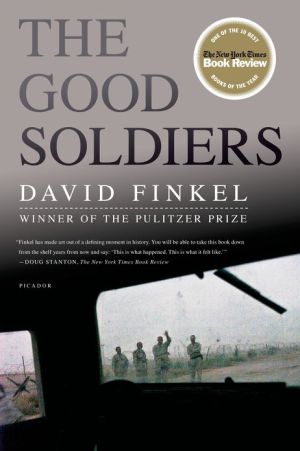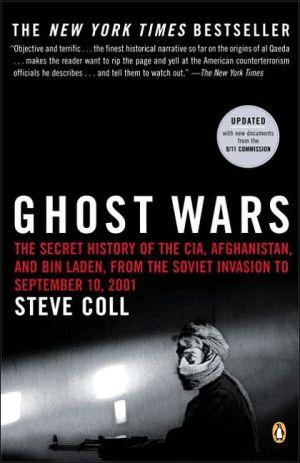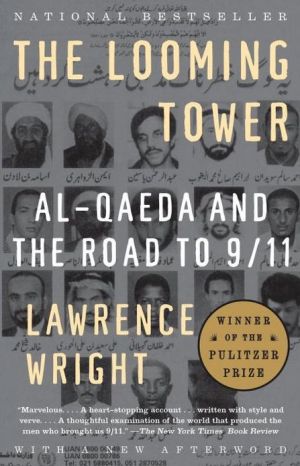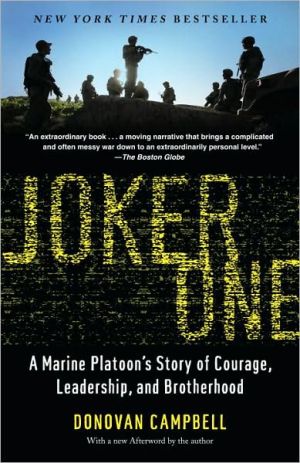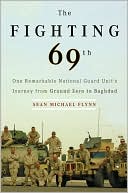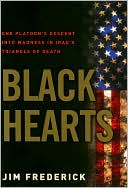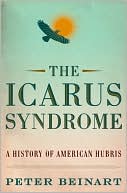Ghosts of War: The True Story of a 19-Year-Old GI
Ryan Smithson joined the Army Reserve when he was seventeen. Two years later, he was deployed to Iraq as an Army engineer. In this extraordinary and harrowing memoir, readers march along one GI's tour of duty. It will change the way you feel about what it means to be an American.
Search in google:
Ryan Smithson joined the Army Reserve when he was just out of high school. At age nineteen he was deployed to Iraq. His year in combat changed his life. This is his story. It will change the way you feel about what it means to be an American. Publishers Weekly In this raw and powerful memoir, veteran Smithson recounts his time as an army engineer in Iraq. As a student in suburban Albany, he joins the army after 9/11. While in Iraq, he's shot at and faces mortar attack, but he spends more time on responsibilities like methodical cleanups of roadside bomb craters-work that's as vital, if not as sexy, as actual combat. Smithson's interactions with Iraqi children and families, as much as with his fellow soldiers, drive the story. Military biography clichés-from the indoctrination of boot camp ("they break us down, build us up, break us down again, and then build us back up") to resentment of officers among the enlisted-abound because they're no doubt true. But the real meat of the book is in Smithson's dealings with American noncombatants, from the little boy who sends care packages to the pilot who insists on upgrading him to first class and his wife and parents. Smithson avoids writing either prowar propaganda or an antimilitary polemic, providing instead a fascinating, often humorous-and occasionally devastating-account of the motivations and life of a contemporary soldier. Ages 14-up. (May)Copyright © Reed Business Information, a division of Reed Elsevier Inc. All rights reserved.
\ Publishers WeeklyIn this raw and powerful memoir, veteran Smithson recounts his time as an army engineer in Iraq. As a student in suburban Albany, he joins the army after 9/11. While in Iraq, he's shot at and faces mortar attack, but he spends more time on responsibilities like methodical cleanups of roadside bomb craters-work that's as vital, if not as sexy, as actual combat. Smithson's interactions with Iraqi children and families, as much as with his fellow soldiers, drive the story. Military biography clichés-from the indoctrination of boot camp ("they break us down, build us up, break us down again, and then build us back up") to resentment of officers among the enlisted-abound because they're no doubt true. But the real meat of the book is in Smithson's dealings with American noncombatants, from the little boy who sends care packages to the pilot who insists on upgrading him to first class and his wife and parents. Smithson avoids writing either prowar propaganda or an antimilitary polemic, providing instead a fascinating, often humorous-and occasionally devastating-account of the motivations and life of a contemporary soldier. Ages 14-up. (May)\ Copyright © Reed Business Information, a division of Reed Elsevier Inc. All rights reserved.\ \ \ \ \ VOYA\ - Jennifer McConnel\ Ryan Smithson was sixteen when the World Trade Center was destroyed on September 11, 2001. He remembers being a self-absorbed teenager at the time, one who could not quite put into words his decision to join the Army Reserve. Ryan's deployment to Iraq two years later shredded his innocence, shaped his life, and is told here in this brutal autobiography. From boot camp to Iraq and back to life in the United States, this autobiography reads like the work of therapy that Smithson claims it as, overflowing with pain and confusion, populated with imagery that teeters on the edge of being brutally obscene. The power of Smithson's experience cannot be denied, and he strives to convey to his readers the lessons he learned while serving in the Army: that death ultimately defines life, that freedom cannot be appreciated before it is lost, and that chaotic evil is the necessary foil to all the positive aspects of humanity. Readers will close this book shaken and potentially nauseated by the casual portrayal of wartime violence, but they also will have an idea of what it is like to be a young veteran. Teens who enjoy stories of war will devour Smithson's text, but it is not a book for everyone. It is all too easy to miss Smithson's point and to see this book as simply an autobiography of pain, gore, and personal trauma. Reviewer: Jennifer McConnel\ \ \ School Library JournalGr 9 Up\ Smithson experienced the events of 9/11 while in high school and responded by enlisting in the Army Reserve after graduation. He married his high school sweetheart before being deployed to Iraq. Once there, he worked as an equipment operator in an equipment platoon, and while mortar fire was a regular occurrence, the missions he describes were all about bulldozing berms, filling craters created by IEDs, and convoying lumber. One gruesome section describes salvaging parts from Humvees in which soldiers died. A few missions, though, were more in the line of favors to the local population than anything that helps combatants. Some of the author's most poignant passages are his descriptions of interactions with Iraqi children. Where he was expecting rock-throwing, he encountered barefoot, dirty children grateful for the water the soldiers gave them. It is these children and the villagers he met that help explain for him the purpose of the war. The book ends with Smithson's return home, his almost magical escape from night terrors, and his work with children in his own hometown. Writing proves to be his therapy for PTSD. There are mixed metaphors aplenty, crude and morbid humor, and other evidence of a young author, but it all works together to create a tough but powerful look at one man's experience.-Eric Norton, McMillan Memorial Library, Wisconsin Rapids, WI\ \ \ \ \ \ Kirkus ReviewsRyan Smithson was a typical 16-year-old high-school student until 9/11. "I'd thought about joining the military the moment I saw the towers fall," he writes in this profoundly moving memoir. Smithson enlisted in the Army Reserve the following year and, a year into the Iraq war, was deployed to an Army engineer unit as a heavy-equipment operator. His poignant, often harrowing account, especially vivid in sensory details, chronicles his experiences in basic training and in Iraq. "Only after we have been completely destroyed can we begin to find ourselves," Smithson writes of basic training, offering an unflinchingly honest portrait of the physical and psychological brutality of that experience. His account of his tour of duty in Iraq is no less compelling. He lucidly recounts the intensity of battle and the pain of losing comrades. For Smithson, the war is a source of personal enlightenment, and this memoir is a remarkable, deeply penetrating read that will compel teens to reflect on their own thoughts about duty, patriotism and sacrifice. (Memoir. YA)\ \

